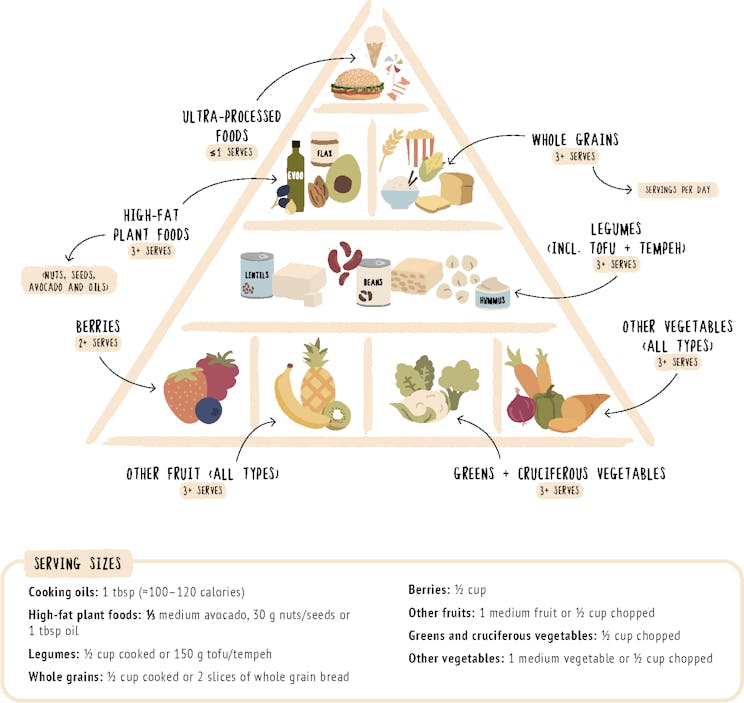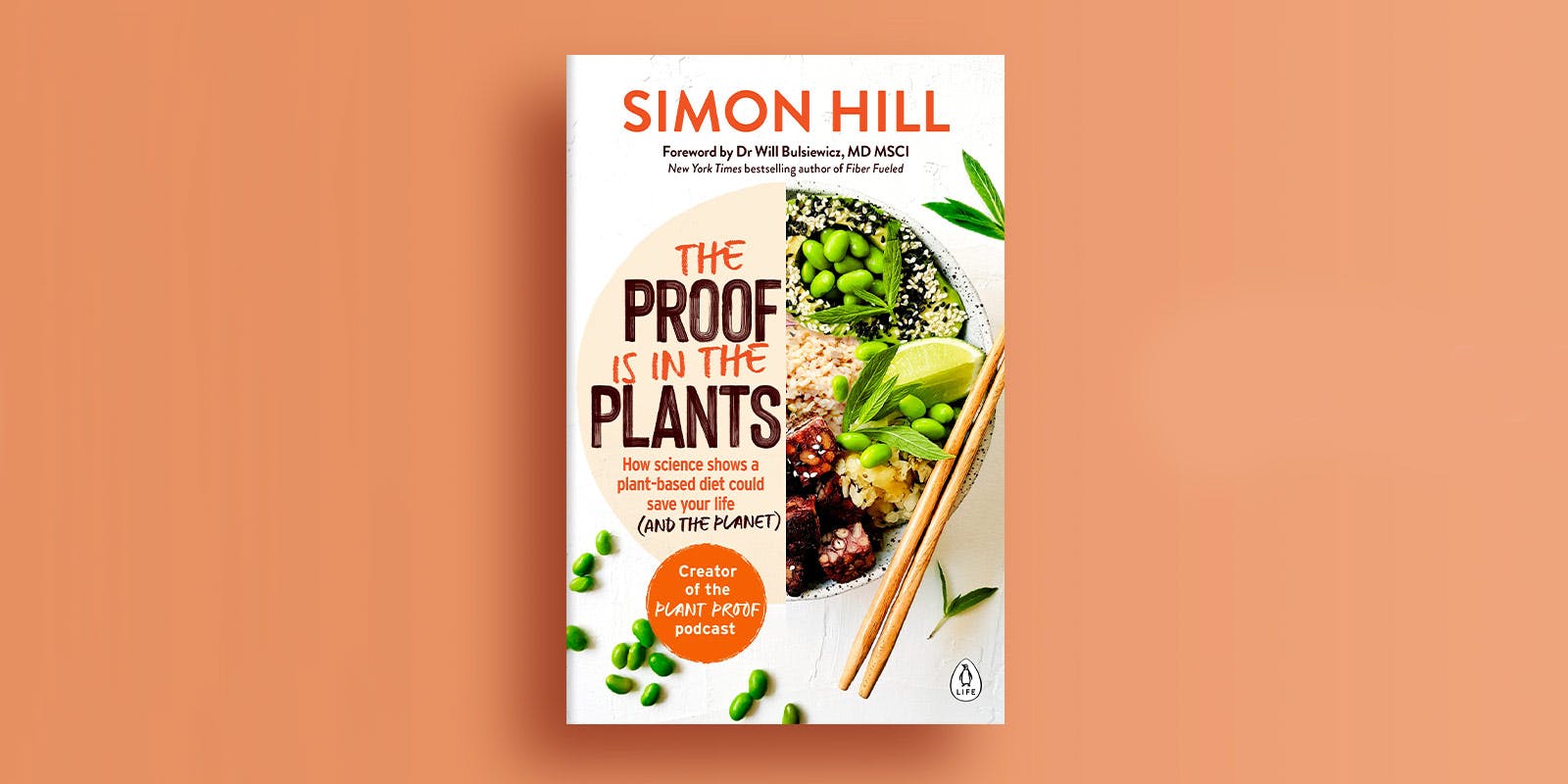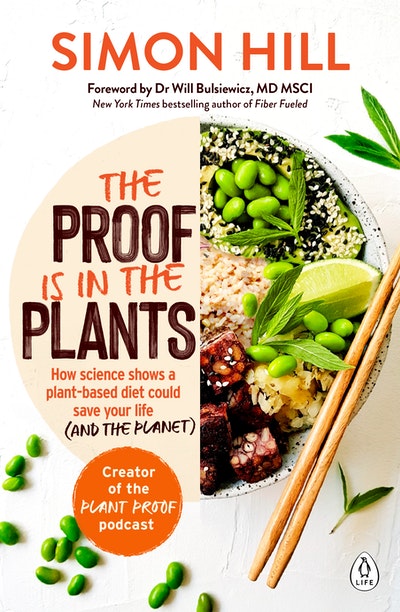Set yourself up for good health with a whole-food plant-based diet.
Simon Hill is a nutritionist and podcast host who is breaking down the confusion around what to eat. By deciphering complex scientific studies and presenting them in an easily digestible way (pun intended) he can show you how to fuel your body to achieve your health and fitness goals. In The Proof is in the Plants Hill shares everything he’s learned through living a plant-based lifestyle, completing a masters in nutrition, pouring over research articles and recording hours of his Plant Proof podcast.
‘Despite the word “plants” in the title, this book is not about labels and is certainly not just for those interested in veganism. My purpose is to clear the confusion, improve your health and help you understand the impact that your food choices have on the world around you,’ says Hill in the book’s introduction. In the passage below, he outlines the eight principles to follow for a healthy whole-food plant-based diet.
The eight Plant Proof principles of a healthy WFPBD
There are eight main principles that create the foundation for a successful whole-food plant-based diet (WFPBD). Together, they make up the Plant Proof Food Pyramid. Decades of research has shown that a WFPBD is one of a few diets that fits the theme of optimal eating for Homo sapiens, and these principles are a distillation of that evidence. I am confident that no matter what nutrient or diet is in the headlines at a given moment, these principles will stand the test of time. They are:
-
FOCUS ON FOOD GROUPS, NOT MACRONUTRIENTS. When we focus on food groups, given there is enough diversity in our diet, the macronutrients (carbohydrates, protein and fat) take care of themselves. These food groups include fruits, vegetables, whole grains, legumes, nuts and seeds in their whole or minimally processed forms.
-
BE FIBRE-OBSESSED (AND PROTEIN-AWARE). Aim for at least 28 g per day of fibre if you’re a woman or 38 g per day if you’re a man.
-
DIVERSITY IS KEY FOR GUT HEALTH. Aim for over forty unique plants per week with plenty of different colours. In doing so, you will feed your healthy gut microbes and help them grow stronger.
-
CONSIDER NUTRIENTS OF FOCUS. Paying attention to specific micronutrients will allow you to experience the full benefit of a WFPBD. The nutrients of focus are omega-3s, vitamin B12, vitamin D, calcium, iodine, iron, selenium and zinc.
-
WHEN WE EAT MATTERS (NOT JUST WHAT WE EAT). Optimising meal timing based on our bodies’ natural clock, or circadian rhythm, may help renew our energy levels, promote a healthy body weight and improve our mood while also decreasing our risk of chronic disease and possibly even adding years to our lives.
-
DRINK WATER FOR THIRST. And minimise alcohol consumption.
-
CUSTOMISATION IS KEY. Adapt to a way of plant-based eating that works for you.
-
DON’T LET PERFECTION BE THE ENEMY OF GOOD. Keep in mind that this is a lifestyle, and therefore it needs to come with a degree of flexibility. What’s most important is incorporating as much of this information as possible into your lifestyle in a sustainable and enjoyable manner. Consistency over time matters far more than what you eat in one particular day.














